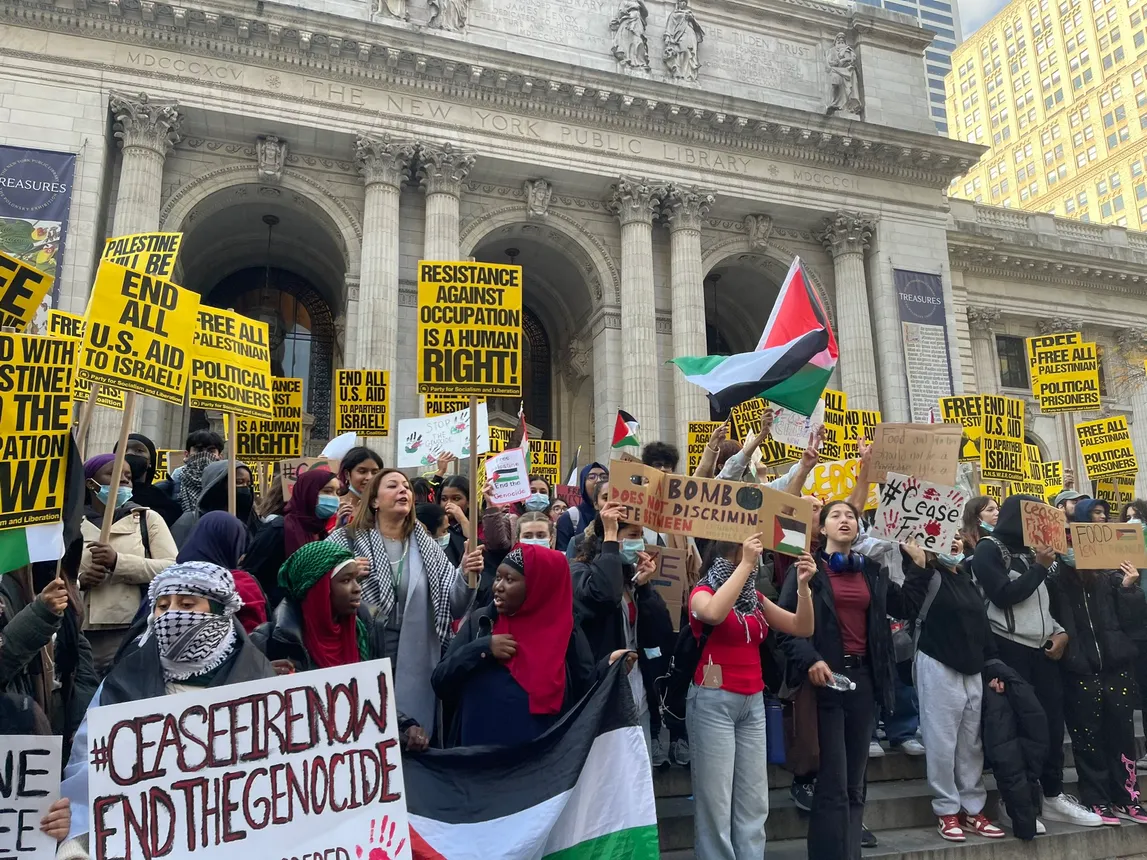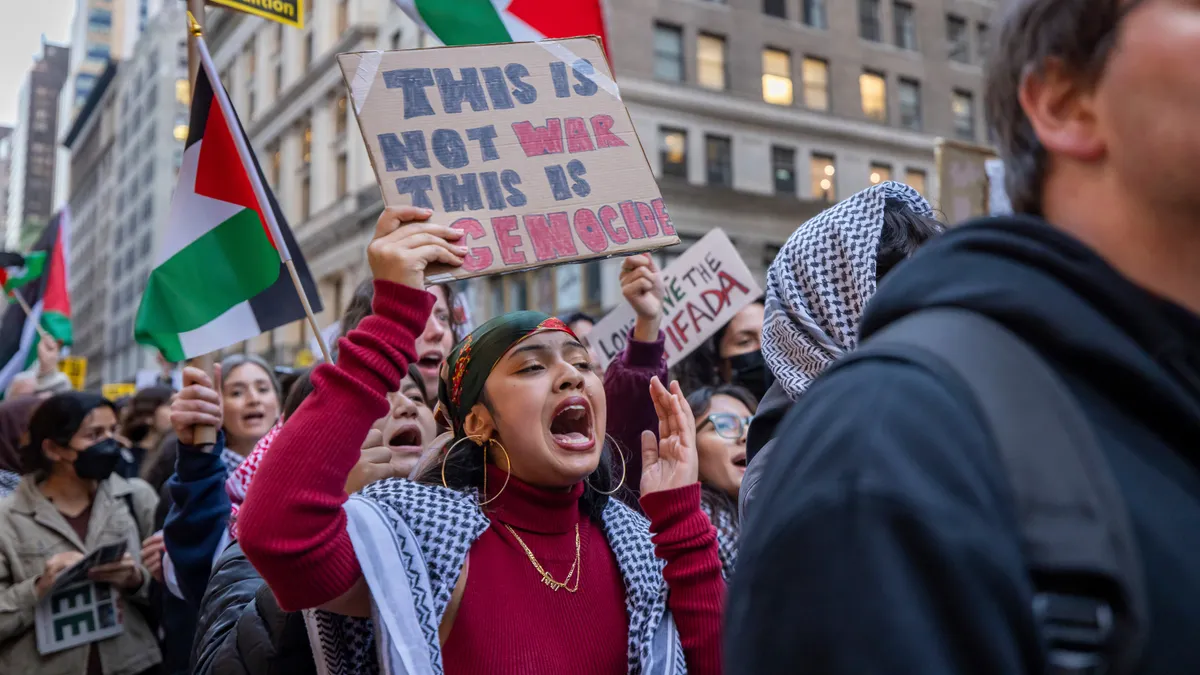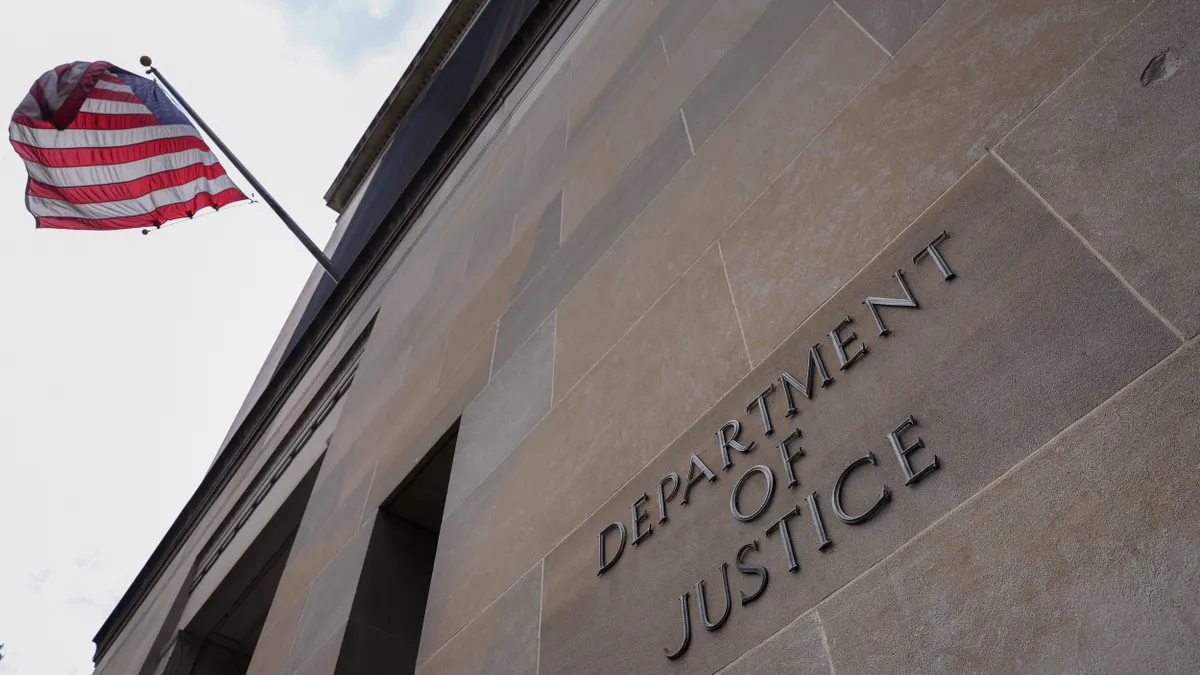Student and teacher activism is pushing education leaders to navigate a politically divisive environment as protests sweep the nation and globe in response to the Israel-Hamas war. On the K-12 level, reported protests have been largely advocating for a cease-fire or pro-Palestine.
On Thursday, hundreds of students calling for a cease-fire walked out of New York City classrooms. Movement of Rank-and-File Educators, a social justice caucus of the United Federation of Teachers, expressed support for the walkout on social media.
Chancellor David Banks, meanwhile, responded to the community. "In this challenging moment, when so many in our communities have deeply held personal views about various aspects of the Israel-Hamas war, the question can arise as to where the line lies between our responsibilities as public school district employees, and our personal lives and views," said Banks, according to an email New York City Public Schools shared with K-12 Dive.
Banks urged employees to "ensure that expressions of their political views are kept separate from their NYCPS job" and don't indicate that they're speaking in their official capacity. He said that employees can express personal views outside of the workday and workplace "in a way that does not cause disruption" to the school.
However, the New York chapter of the American Civil Liberties Union warned in a statement on social media that "attempting to restrict teachers' & staff members' political speech — especially speech that occurs outside the workplace — is often an overreach and can chill peaceful debate and discussion."
"Outside of the classroom, teachers have their First Amendment rights just as any other individual has," said Wesley Hedgepeth, president of the National Council for the Social Studies, in an email on Friday.

He added that "teachers should model informed civic action" for their students, but he warned they might lose their jobs if they violate school rules. Hedgepeth now teaches social studies courses at a private school in Virginia and previously taught at a public one.
Meanwhile, in advance of a walkout last week planned by students at Virginia's Alexandria City High School, Executive Principal Alexander Duncan III sent a message to staff and families. In the Nov. 8 note about the walkout related to the Middle East situation, Duncan said high school administrators and central office staff were "prepared and positioned to ensure that this walkout is conducted in a safe and respectful manner."
Last month, students in the San Francisco Bay Area also participated in a "Walk Out for Gaza," worrying some members of the local Jewish community.
"We are extremely concerned by this action, the messaging, and its impact on Jewish students' safety and sense of belonging," said a letter addressed to San Francisco Unified School District Superintendent Matt Wayne and the school board. "Our Jewish students and families are vulnerable, and need to know that we belong here."
The letter, which came from the Russian-speaking Jewish Community of SF Bay Area, asked Wayne to prevent staff and teachers from "from participating in or promoting" the protest.
Wayne said in a public announcement on Oct. 17, a day prior to the scheduled walkout, that while the district "supports the right of our students to express their views in a peaceful manner, including their constitutional right to peacefully protest, the walkout is not an SFUSD sponsored activity."
Wayne said he issued guidance to school leaders "to address safety concerns and reiterate educational focus during the school day."
Educators are navigating the wave of student protests amid a noted rise in Islamophobic and antisemitic incidents on school grounds.
On Tuesday, the U.S. Department of Education sent a Dear Colleague letter to educators nationwide pointing to an "alarming rise" in reports of antisemitic and Islamophobic incidents. Assistant Secretary for Civil Rights Catherine E. Lhamon, who wrote the Dear Colleague letter, said the department is urging “school communities to be vigilant" of discrimination against Muslim, Jewish and other students.
The increase in anti-Jewish and anti-Muslim incidents reflects a pattern that Muslim and Jewish advocacy groups said is being increasingly seen nationwide.
According to the Anti-Defamation League, a leading organization that advocates against antisemitism, antisemitic incidents increased by 388% year over year between Oct. 7 — the day of the Hamas attack on Israel — and Oct. 23.
The Council on American Islamic Relations, the nation's largest Muslim civil rights advocacy organization, noted 774 complaints of Islamophobic incidents between Oct. 7 and Oct. 24.






















